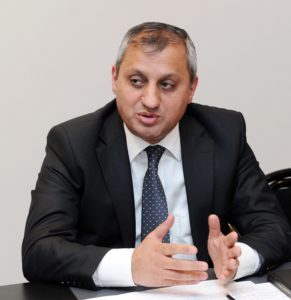New steps in Judicial-Legal Reforms in Azerbaijan
Posted by: admin | Posted on: Апрель 8, 2019 President Ilham Aliyev’s Decree On Deepening Reforms in the Judicial-Legal System is of crucial importance in terms of essence, content, design and overall scope of activities and includes fundamental reforms”
President Ilham Aliyev’s Decree On Deepening Reforms in the Judicial-Legal System is of crucial importance in terms of essence, content, design and overall scope of activities and includes fundamental reforms”
It is stated in the introductory part of the decree that the reforms carried out in all spheres to ensure the sustainable progress of our country necessitate a new stage in development of the judicial-legal system and deepening of the reforms in this area. Then, the decree reflects the issues related to the reforms that are in place. In total, more than 40 events are envisaged in the decree.
The main goal is to accelerate the process of formation of the judiciary having a high reputation in the society. At the same time, the scope of this Decree encompasses measures for expanding access to the courts, increasing transparency, increasing the effectiveness of judicial proceedings, complete and timely implementation of decisions, elimination of procrastination and other negative issues.
The decree signed by the head of state can be called a new stage in judicial reform. As one of the main issues in order to facilitate entrepreneurs’ access to the court and to ensure that business disputes are reviewed by judges who have a deeper legal knowledge and experience in the relevant field it provides for establishment of the court specialized on the disputes related to the tax and customs payments, payment of mandatory state social insurance fees as well as cases related to entrepreneurship activities and other issues.
It is also envisaged to strengthen the social protection of judges in issues arising from the decree. In this case, differentiation of rates of state duty paid on the cases considered in the court in accordance with the claims is set as the condition for of the security. It is crucial that there is an issue of allocation of a part of the state duties to strengthening of the material and social security of the courts reflected in the Decree.
One of the most important issues is provision of the requirement for a continuous audio recording of the court sessions and that the protocol be compiled in accordance with the recording of the court sessions: In some cases, the views, opinions, testimonies of the parties and participants in the proceedings are incorrectly entered into the protocol. This is one of the most controversial issues in the court proceedings. Such cases also affect the quality of the court decisions and, in some cases, leads to incorrect decisions, speculation, and bargaining.
Another issue is clarification of the timing for conducting a forensic examination and giving an expert opinion on the civil and administrative offenses, economic and administrative disputes. According to the decree, parties will be able to apply not only to the divisions of the state expertise institutions, but to the independent expert institutions. This will ensure building the trust and confidence in the courts and objectivity in the decision-making process. That is, there will be alternative expert opinions and the court will have the opportunity to compare them during the dispute.
In the decree, the Bar Association has received recommendations for doing serious work to prevent unlawful corruption acts. Moreover, the Ministry of Finance was assigned to transfer the funds allocated for free legal aid directly to the account of the Bar Association. This is a very important issue. It will allow provision of quality legal assistance. In addition, it is crucial to establish hotlines for receiving relevant information in order to ensure the independence of the judges in the Judicial-Legal Council, and elimination of such negative facts as interference with the activities of the courts and other circumstances.
It is crucial that the Supreme Court was authorized to establish an appropriate mechanism for elimination of systemic deficiencies identified as a result of summarizing of the court practice.

.jpg)
.jpg)
.jpg)
.jpg)
.jpg)
.jpg)
.jpg)
.jpg)
.jpg)
.jpg)
.jpg)
.jpg)
 D5 Creation
D5 Creation
Comments are Closed